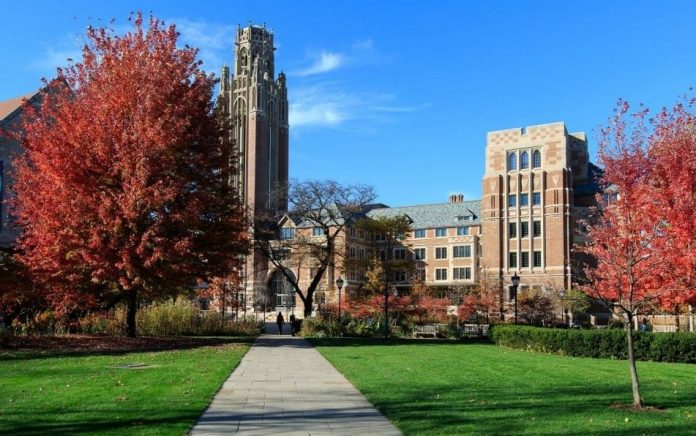
University of Chicago students should not expect to get “trigger warnings” before professors talk about sensitive topics, or “safe spaces” where they can gather with others to avoid a speaker whom they find offensive, entering students were told this week.
It was not a dramatic change in philosophy for the prestigious university; school president Robert Zimmer’s welcome letter last fall also emphasized freedom of expression, and a faculty report of 2015 cemented the university’s commitment to that principle. But after a year of intense protests at campuses across the country, many involving raw emotions over conflicts about ‘racial tensions and sexual assault’, the letter’s direct language set off flares both on campus and far beyond with a debate about free speech, hate speech, student rights and students’ demands.
“Welcome and congratulations on your acceptance to the College at the University of Chicago!” the letter from the dean of students begins. After a warm opening, though, the tone is direct, telling the incoming class of 2020 that a defining characteristic of the school is the commitment to freedom of inquiry and expression — and that they should not expect accommodations many students have demanded at campuses across the country.
“You will find that we expect members of our community to be engaged in rigorous debate, discussion and even disagreement,” John “Jay” Ellison, the dean, wrote in a letter that accompanied a book, “Academic Freedom and the Modern University: The Experience of the University of Chicago.”
“At times this may challenge you and even cause discomfort.
“Our commitment to academic freedom means that we do not support so-called ‘trigger warnings,’ we do not cancel invited speakers because their topics might prove controversial, and we do not condone the creation of intellectual ‘safe spaces’ where individuals can retreat from ideas and perspectives at odds with their own.”
Over the past few years, there has been a sea change nationally, Harris said, in the way that issues of censorship and free speech on campuses have been affecting students and faculty not only in daily conversation but also in the classroom, with a chilling effect on academic freedom. In the past, she saw pushes to censorship coming from the top-down — from university administrators.
Lately, that dynamic has switched in many places, she said, with students pushing for more limits on speech they find offensive.
People debate why this generation of students seems more apt to make such demands, with some believing they are forcing administrators to confront the truth on uncomfortable issues such as campus rape and others saying they have been so over-protected by helicopter parents that they are quick to take offense.
Harris welcomed the letter, and said she hoped other universities would follow and take a strong stand to uphold academic freedom.
Picture: Facebook
—
(c) 2016, The Washington Post · Susan Svrluga

